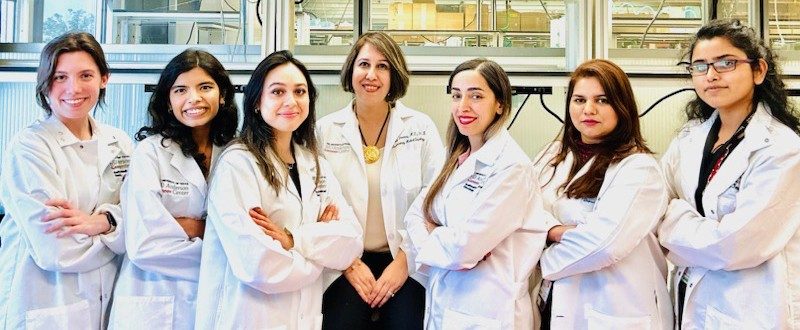Research

The tumor immune microenvironment is extremely dynamic. Tumor and immune cell subsets demonstrate significant plasticity and evolve into different functional states based on the cues received from the microenvironment.
One of the critical pathways that regulate the functional phenotype of tumor and immune cell subsets is epigenetic regulation. Based on the basic mechanistic understanding of these processes, we aim to develop strategies to target specific pathways to overcome primary and adaptive resistance to immune-based therapies. We have identified critical epigenetic pathways that regulate functional phenotypes of T cells and myeloid cells that are currently being tested in the clinic.
In addition, the lab focuses on translational studies using patient samples to identify predictive biomarkers for response to immune checkpoint therapy. Using reverse translational strategies, we test our findings using pre-clinical model systems and high-throughput single-cell technologies and computational analysis to garner mechanistic insight.

Projects in the laboratory:
- Investigate the role of novel histone post-translational modifications (PTMs) in regulating the phenotype and function of different immune cell subsets. Thus, we aim to uncover new regulatory mechanisms that may impact immune responses and cell fate decisions in homeostatic and diseased conditions.
- Delineate tumor cell and immune cell-specific epigenetic pathways driving response and resistance to immune-based therapies in different tumor types particularly those demonstrating adaptive or de-novo resistance to immunotherapy.
- Identify single and combinatorial predictive biomarkers to stratify patients most likely to benefit from immune checkpoint therapy. By refining patient selection, the goal is to improve therapeutic outcomes and reduce unnecessary treatments in those unlikely to respond.
- Develop rational combinatorial therapeutic strategies including the use of epigenetic modulators to overcome resistance to immune checkpoint therapy in a tumor-specific manner.
A tutorial in my laboratory would provide experience in various high throughput immunological and epigenetic techniques, as well as an understanding of basic immunology and translational research processes.
